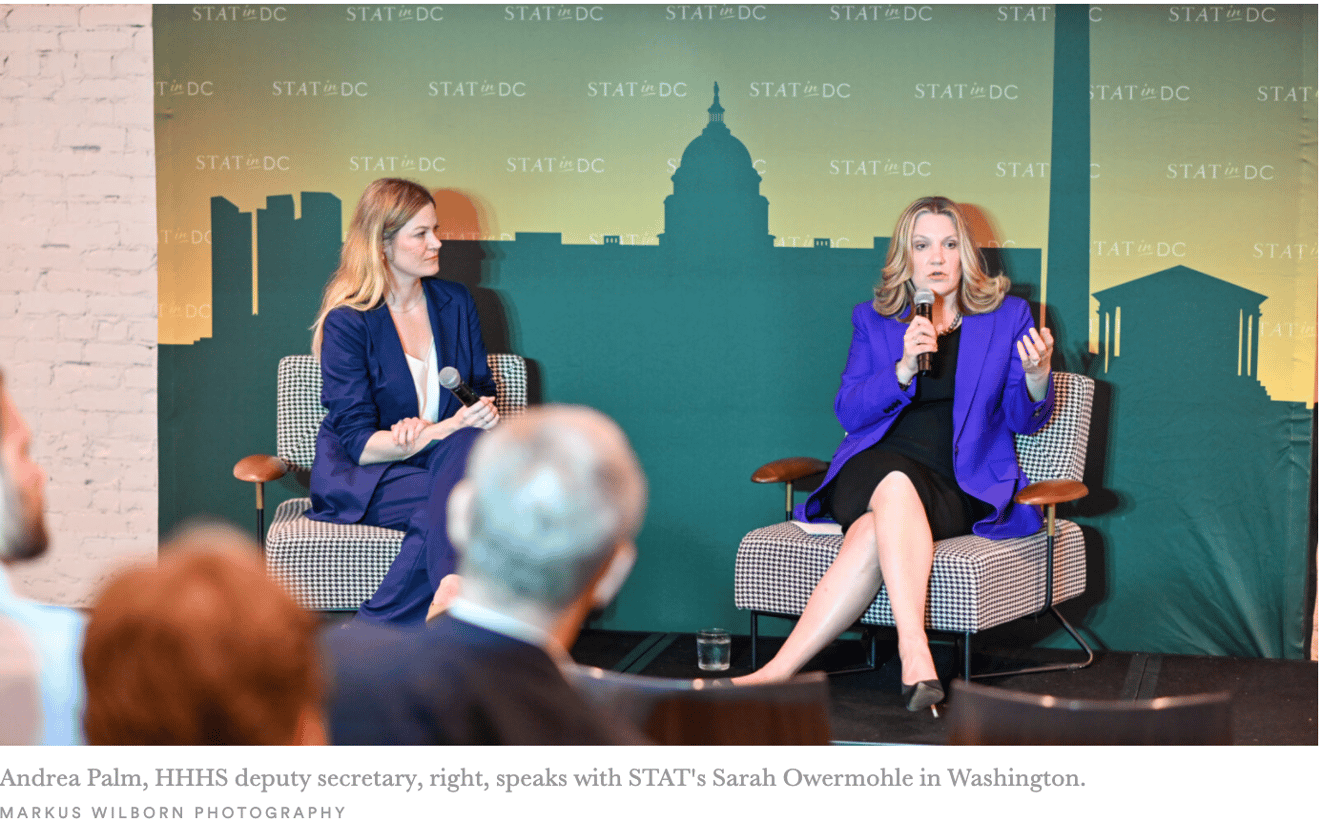artificial intelligence
Is academic medicine gatekeeping artificial intelligence?

Large, well-funded academic medical institutes with ample computing and data capability are racing to adopt AI systems to ease clinicians' burden and churn through administrative tasks. But it's the smaller, under-resourced health systems that could benefit the most, Casey Ross reports.
To close the gap between what Casey calls the "haves and have-nots of "AI in American medicine," the Health AI Partnership aims to help smaller providers and federally qualified health centers embrace AI, even if they lack time and money compared to their academic competitors. Through its Practice Network, providers will spend a year testing AI tools to eventually incorporate into their own workflows.
"When you see what some of these other organizations are able to do with AI, you can't even imagine how we're ever going to get there," Jennifer Cortes, a doctor and population health officer at Arizona federally qualified health center North Country HealthCare. "It's kind of out of reach."
Read more from Casey Ross here.
virtual care
Mixed bag for Teladoc after Gorevic's departure
The closely watched virtual care giant held its first earnings call since its longtime leader Jason Gorevic's abrupt removal by the board last month — and, like many quarters before, it's a mixed bag. Revenue ticked up 3% year-over-year in 2024's first quarter to $646 million, but direct-to-consumer mental health care property BetterHelp's segment dipped 4% to $269 million.
If you need a refresher, Mario Aguilar and I dove deep into into Teladoc's history since Gorevic joined company in 2009 to his surprise departure last month.
The company also said the search for a new chief executive is well underway.
Washington
Change hack is still top-of-mind in Washington
Regulators and lawmakers are still wrestling with the fallout from the ransomware attack on payment processing company Change Healthcare: This week the powerful House Energy & Commerce Committee's oversight subcommittee plans to take up the issue with Andrew Witty, head of UnitedHealth Group, which owns Change, in a hearing Wednesday.
Elsewhere on the Hill Wednesday, the House Homeland Security Committee's cybersecurity and infrastructure subcommittee is examining a new proposed rule for cybersecurity incident reporting that would require companies, including some hospitals, to report cyber incidents to the federal government within 72 hours, as well as any ransomware payments they've made within 24 hours. Public comment on the rule is open until June 3.
A conversation with HHS' deputy secretary Andrea Palm

I dropped by STAT's Policy in Healthcare event in Washington last night, where my colleague Sarah Owermohle grilled Health and Human Services Department deputy secretary Andrea Palm on issues ranging from federal response to Change Healthcare to a delayed ban on menthol cigarettes. Among health tech takeaways: the Biden administration plans to pivot from dangling incentives to hospitals to protect patient data to penalizing them for not doing so. "We certainly envision in our proposal that the incentives will turn to disincentives," Palm told Sarah. Read more from STAT's John Wilkerson.
What Change means for Community Health Centers
The National Association of Community Health Centers — a class of non-profit providers typically focused on primary and safety-net care — concludes in a new survey that more than 75% of health centers experienced negative effects from the breach, including delays to patient care. About half of community health centers' patients are on Medicaid, and the association said loans set up to address payment delays haven't covered financial losses.
FTC drops new health breach notification rule
The Federal Trade Commission is charging ahead in its mission to shore up the regulatory gap between services governed by health data law HIPAA and apps that technically fall outside HHS' purview, but that still gather mountains of sensitive health-related data. There's been widespread debate about what types of services qualify, but last week, the agency finalized changes to one of its main enforcement tools for health data, a 2009 rule requiring groups hosting identifiable health information to notify users when their data is breached.
Under the updated final rule, the agency clarifies that health apps and similar products are indeed subject to the notification requirement; within a couple months, they'll be required to disclose security breaches and any unauthorized data sharing. Read more on the rule from FTC's blog.
Lizzy's device digest
FDA finalizes plan to regulate some lab-developed tests
Following Congressional failure to pass a law regulating tests developed in labs, the Food and Drug Administration has finalized its own plan to oversee them, with some exceptions, Lizzy Lawrence reports. These tests have historically been considered low risk, despite encompassing products like the spurious blood tests hawked by Theranos and misleading prenatal genetic tests.
"The agency cannot stand by while Americans continue to rely on results from these tests without assurance that they work," FDA Commissioner Robert Califf said Monday. FDA estimates about 12,000 labs will need to submit tests for evaluation.
The plan has faced pushback from lab trade groups and hospitals who say the high cost of regulation will deprive patients of access to crucial tests. Read more from Lizzy here.







No comments